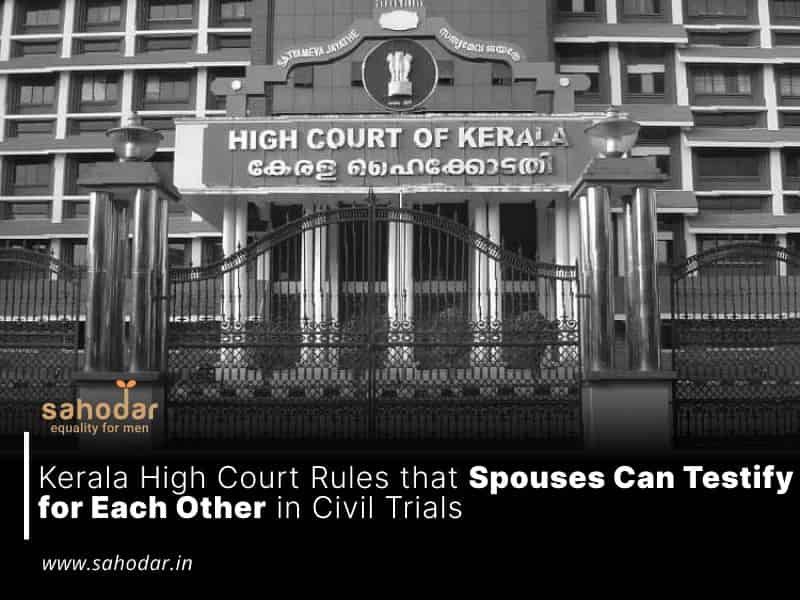Section 120 of the Indian Evidence Act permits the husband to give evidence in place and instead of his wife and vice versa, even in the absence of a written authority or power of attorney, the Court said.
The Kerala High Court recently ruled that spouses are permitted to testify for each other in civil trial proceedings under Section 120 of the Indian Evidence Act [Smitha v Anil Kumar & Ors]. Justice Kauser Edappagath noted that, according to Section 120, a husband and wife are competent to provide evidence both within their own knowledge and within the knowledge of their spouse.
“(On reading Section 120), it is clear that a non-litigating spouse is a competent witness for the other spouse who litigates. Section 120 permits the husband to give evidence in place and instead of his wife and vice versa even in the absence of a written authority or power of attorney. Such a witness is entitled to depose not only the facts within his/her knowledge but also within the knowledge of his/her spouse,” the June 18 ruling stated.
The Court was addressing an application by a woman who had filed a civil suit, which was pending before a trial court.
During the trial, the woman (the plaintiff in the trial court) sought permission for her husband to testify or present evidence on her behalf.
However, the trial court denied this request, stating it was not permissible for one person to provide evidence on behalf of another. The trial court added that the husband could only be examined as the plaintiff’s witness.
The plaintiff challenged this denial by filing an application before the High Court.
The plaintiff’s counsel argued that the trial court’s decision was flawed, as it overlooked Section 120 of the Indian Evidence Act, which explicitly permits spouses to testify for each other in civil proceedings.
The High Court was informed that the husband was a key witness who could provide crucial testimony relevant to the case.
To decide on the matter, the High Court examined Section 120 of the Indian Evidence Act, which states, “In all civil proceedings, the parties to the suit, and the husband or wife of any party to the suit, shall be competent witnesses … ”
The High Court noted that this provision supersedes the general procedural rules, permitting non-litigating spouses to testify on behalf of their litigating spouses without the need for a power of attorney.
Consequently, the High Court disagreed with the trial court’s decision on this matter and overturned the order denying the plaintiff’s request for her husband to testify on her behalf.
“The finding of the trial court in the impugned order that the husband cannot give evidence on behalf of the plaintiff/wife and that he can only be cited and examined as the plaintiff’s witness cannot be justified. The trial court passed the impugned order without adverting to Section 120 of the Indian Evidence Act. Accordingly, it is set aside,” the High Court ruled.

